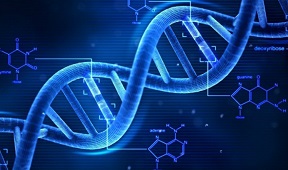Speakers
Joseph M Bodi
University of Kinshasa, Democratic Republic of Congo Democratic Republic of CongoTitle: Immunogenetic Mechanisms of Black Water Fever
Abstract:
The authors systematically reviewed the literature on mechanisms of Black Water Fever ‘BWF) on immunology and genetics point of view to determine whether immunity and genetics are involved in the occurrence of Acute Intravascular haemolysis in malaria, leading to BWF.. All original reports of BWF were retrieved from Embase, Medline from 1935 to December 2018. Information extracted from each article included study design, definitions of BWF, pathogeny and risk factors of the disease. Descriptive, Prospective cohort, cross sectional, and case-control studies were assessed. Malaria IgG1 antibodies were measured. MBL2 gene were amplified and sequenced. BWF was associated to high level of malaria IgG1 antibodies. The geometric mean of antibodies in patients with BWF was high [1,95mg/l (IC95% :1,55-2,44) compared to [ 1,19 mg/l (IC95%: 0,98 1,43) ] in children with uncomplicated malaria. High malaria IgG1 were statistically significantly associated with increased risk to develop BWF Children with MBL2 gene variants were less susceptible to develop BWF compared to children with normal MBL2 gene. Genotypes MBL2 AB&AC (AO) were more frequent in the control children group compared to the BWF cases:[OR: 0,21 (0,06-0,78) avec p=0,019] suggesting a protection conferred by gene mutations. Because of high level of MBL protein in MBL2AA genotypes patients; complement activation due to this protein can increase risk to acute intravascular hemolysis, the major mechanism of BWF Malaria .High level of IgG1 and the MBL2 AA genotypes seem to be the risk factors incriminated in the occurrence of BWF.
Biography:
Dr. Joseph M. Bodi is from Department of Pediatrics, University of Kinshasa, Kinshasa, Democratic Republic of Congo and intereested in Immunogenetics, University of Nagasaki, Nagasaki, Japan.
Video Presentation
Kunal Joon
Ganga International School Laboratory, IndiaTitle: Virus is living and its treatment
Abstract:
A viral test is done to find infection-causing viruses. Viruses grow only in living cells. Viruses cause disease by destroying or damaging the cells they infect, damaging the body's immune system, changing the genetic material (DNA) of the cells they infect, or causing inflammation that can damage an organ. Viruses cause many types of diseases, such as human immunodeficiency virus (HIV), cold sores, chickenpox, measles, flu (influenza), and some types of cancer.
Biography:
He is Young Research student under assistance of Dr. Rishi Bhatia. He gave presentation and shared his reserach work on Genetics.
.


